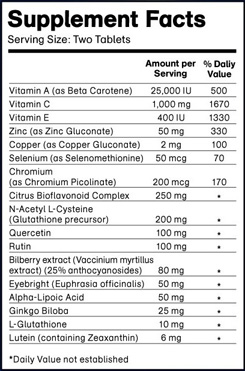|
The Harold Ridley Story
A famous ophthalmologist named Sir Nicholas Harold Ridley pioneered the artificial intraocular lens. He was born in England on July 10, 1906 — the son of Nicholas Charles Ridley and Margaret, née Parker, with a single brother named Olden. As a child he had a stammer, which he was able to cure for the most part on his own, and he was very fond of Florence Nightingale, who was a close personal friend of Magaret's. He went to Charterhouse School before going to Pembroke College, Cambridge, where he studied from 1924 to 1927, and he finally got his medical degree at St. Thomas' Hospital in 1930. After that, he worked at Moorfields Eye Hospital and St. Thomas' Hospital in London as an ophthalmic surgeon. Years later, in 1938, he was appointed to the position of full surgeon and consultant, and then to consulted surgeon in 1946. During World War II, Harold Ridley worked with Royal Air Force casualties. Around this time, he took notice of the way the eyes of wounded pilots did not reject the shards of acrylic plastic (which had come from the aircraft cockpits) that were lodged inside them. This led him to consider the possibility of using that very same material to create an artificial intraocular lens for patients who have undergone Cataract Surgery. He had International Chemical Industries manufacture a lens from the acrylic plastic and gave it the brand name Perspex. On November 29, 1949, he successfully carried out the very first implant of an artificial lens—however, it wasn't until a year later he left a lens permanently in place.
Harold Ridley made a great impact on modern ophthalmology as the first person to ever succeed at replacing the lens of a person's eye following cataract surgery, and the lenses are still in regular use. This has made cataract surgery a simple and efficient way of improving one's eyesight without having to worry about experiencing difficulties afterward. Cataracts are a condition where a person's intraocular lens becomes clouded over, making it difficult for them to see clearly. There are a few different kinds of cataract, ranging in severity — some of which can even result in blindness or change the range of color that the person's eye can perceive. For the most part, though, cataracts can be easily dealt with. Since the root of the problem is Blurry Vision that can be restored by means of a simple operation where the lens is removed and an artificial replacement is implanted. There are usually no ill effects aside from the occasional “after-cataract”, where the remains of the lens crinkle up and further impair the person's sight. However, this can usually be fixed in seconds with laser treatment. Despite how simple this process is, it owes its existence to a long history of ophthalmic studies. The first cataract removal is said to have been done as early as 800 BC, and it still wasn't until the 1940s that it was made possible to install a replacement lens following the surgery. The tools that surgeons have at hand in the modern day are crucial in helping to Protect Your Eyesight.

Subscribe to EyeSight Vision Care! , our monthly newsletter with in depth information to help you keep up to date on how to Protect Your Eyesight with a free bonus. Fill out the form below. You'll then receive an email asking you to confirm that you subscribed. You'll always have the option to unsubscribe at the click of your mouse. Harold Ridley to Facts About Eyesight
|
More Information










